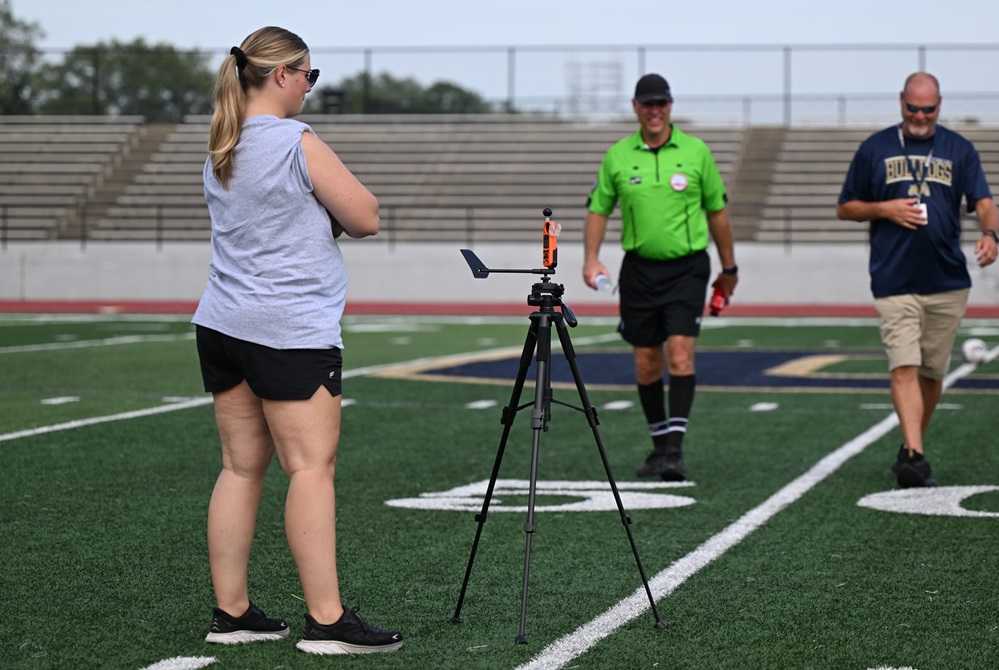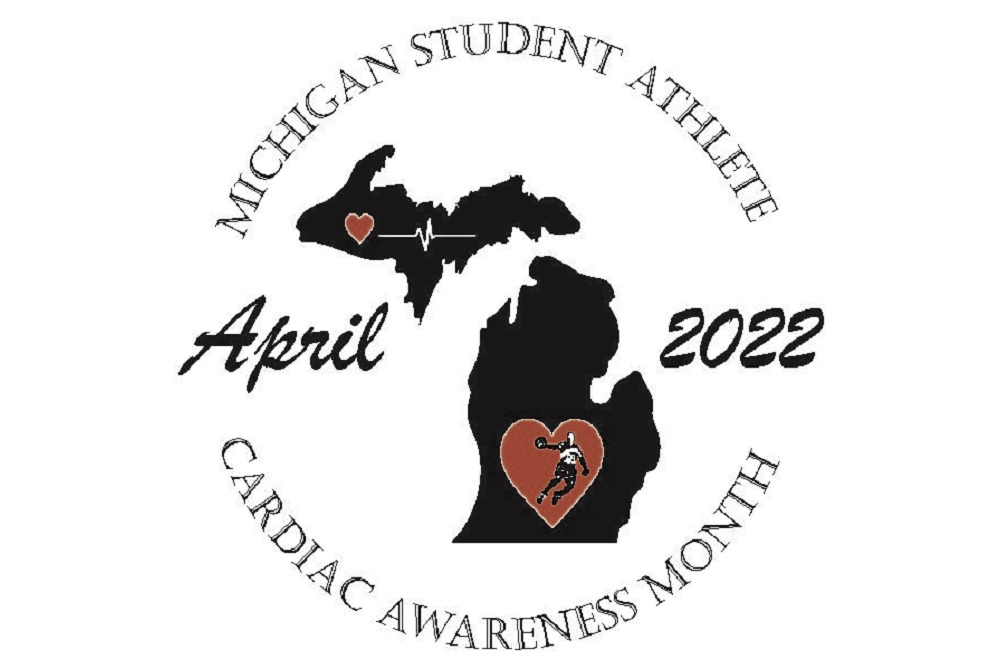
Heat Ways: School Sports Prepared for Oncoming Wave of High Temps, Humidity
By
Geoff Kimmerly
MHSAA.com senior editor
August 27, 2024
With temperatures and humidity expected to rise exceptionally today across most of downstate Michigan, decision-makers across school sports are prepared to take precautions to keep all involved in our activities safe as we ride out this latest heat wave.
The MHSAA’s Model Policy for Managing Heat & Humidity is required only during postseason activities, but has been adopted by several schools across the state for preseason and regular-season practices and competitions.
The plan directs schools to begin monitoring the heat index at the activity site once the air temperature reaches 80 degrees and provides recommendations when the heat index reaches certain points, including ceasing activities when it rises above 104 degrees. (When the temperature is below 80 degrees, there is no combination of heat and humidity that will result in a need to curtail activity.) Other precautions include the addition of mandatory 10-minute water breaks and the removal of equipment (including helmets and shoulder pads in football).
The model heat & humidity policy is outlined in a number of places on the MHSAA Website, including as part of the Heat Ways publication linked on the “Health & Safety” page.
PHOTO Otsego High School trainer Taylor Austin tracks field conditions Monday during a soccer match. (Photo by Gary Shook.)

HEARTSafe School Video Contest to Assist in Promoting Cardiac Awareness Month
By
Geoff Kimmerly
MHSAA.com senior editor
April 19, 2022
April is Michigan Student Athlete Cardiac Awareness Month, and the Kimberly Anne Gillary Foundation is partnering with the MHSAA to promote cardiac awareness – and providing an opportunity for students to join the effort and earn $5,000 for their school.
Michigan has lost at least 81 students to sudden cardiac arrest (SCA) and related causes since 1999, according to data compiled by the Kimberly Anne Gillary Foundation. Randy and Sue Gillary lost their daughter Kimberly to a cardiac arrest in a high school water polo game in April of 2000.
 The MI HEARTSafe School Video Contest will promote student-produced videos highlighting the importance of Michigan schools becoming a Mi HEARTSafe school. The winning entry will be chosen by Kimberly Gillary’s three sisters and will receive $5,000 for the winner’s school. Entries are due May 13; see the Kimberly Anne Gillary Foundation website for details.
The MI HEARTSafe School Video Contest will promote student-produced videos highlighting the importance of Michigan schools becoming a Mi HEARTSafe school. The winning entry will be chosen by Kimberly Gillary’s three sisters and will receive $5,000 for the winner’s school. Entries are due May 13; see the Kimberly Anne Gillary Foundation website for details.
Randy and Sue Gillary founded the Kimberly Anne Gillary Foundation, a 501 (c)(3) charitable foundation within days of losing Kimberly. The mission of the Foundation is to donate automated external defibrillators (AEDs) to Michigan high schools and to advocate cardiac screening and testing of Michigan high school student athletes.
A major drive of the foundation is for every Michigan school to become a MI-HEARTSafe School. This is a designation given by the Michigan Department of Health and Human Services (MDHSS) when a school has met the criteria to demonstrate it is prepared to respond to a cardiac emergency on school property. Schools receive a banner and other materials that can be displayed in the school to let those who attend and visit know that the school is a MI-HEARTSafe School.
“The goal of our Foundation is to try to prevent other parents from going through what we went through with the loss of our beloved Kimberly,” Randy Gillary said. “We are proud to be partnering with the MHSAA in promoting cardiac awareness for Michigan’s student athletes. The MHSAA has been a leader in helping to change the culture in the state of Michigan to make our Michigan high schools more focused on being prepared to respond to a cardiac emergency on school property.
The Kimberly Anne Foundation has raised more than $1.68 million and has donated more than 825 AEDs to Michigan high schools.
“We believe that the vast majority of Michigan high schools now have at least one AED,” Randy Gillary said. “Most high schools did not have an AED when we lost Kimmy in 2000. Michigan high schools are now in a much better position to respond to the sudden cardiac arrest of a student athlete. AEDs donated by the Kimberly Anne Gillary Foundation to Michigan schools have been used to provide defibrillation shocks to save at least nine lives.”


